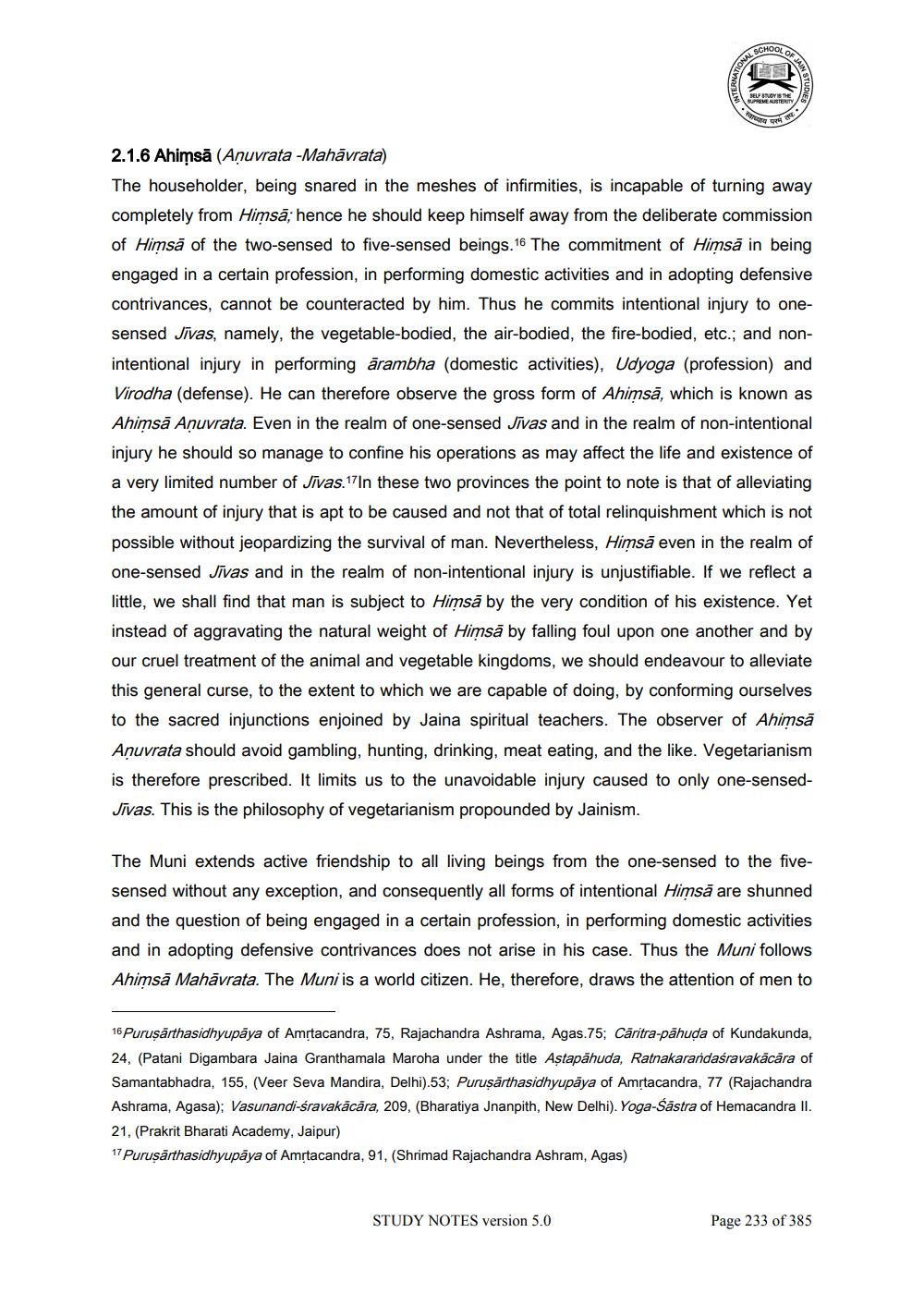________________
2.1.6 Ahimsā (Anuvrata -Mahāvrata) The householder, being snared in the meshes of infirmities, is incapable of turning away completely from Himsā; hence he should keep himself away from the deliberate commission of Himsā of the two-sensed to five-sensed beings. 16 The commitment of Himsă in being engaged in a certain profession, in performing domestic activities and in adopting defensive contrivances, cannot be counteracted by him. Thus he commits intentional injury to onesensed Jīvas, namely, the vegetable-bodied, the air-bodied, the fire-bodied, etc.; and nonintentional injury in performing ārambha (domestic activities), Udyoga (profession) and Virodha (defense). He can therefore observe the gross form of Ahimsā, which is known as Ahimsă Aņuvrata. Even in the realm of one-sensed Jīvas and in the realm of non-intentional injury he should so manage to confine his operations as may affect the life and existence of a very limited number of Jīvas. 17In these two provinces the point to note is that of alleviating the amount of injury that is apt to be caused and not that of total relinquishment which is not possible without jeopardizing the survival of man. Nevertheless, Himsā even in the realm of one-sensed Jīvas and in the realm of non-intentional injury is unjustifiable. If we reflect a little, we shall find that man is subject to Himsā by the very condition of his existence. Yet instead of aggravating the natural weight of Himsā by falling foul upon one another and by our cruel treatment of the animal and vegetable kingdoms, we should endeavour to alleviate this general curse, to the extent to which we are capable of doing, by conforming ourselves to the sacred injunctions enjoined by Jaina spiritual teachers. The observer of Ahimsā Anuvrata should avoid gambling, hunting, drinking, meat eating, and the like. Vegetarianism is therefore prescribed. It limits us to the unavoidable injury caused to only one-sensedJīvas. This is the philosophy of vegetarianism propounded by Jainism.
The Muni extends active friendship to all living beings from the one-sensed to the fivesensed without any exception, and consequently all forms of intentional Himsă are shunned and the question of being engaged in a certain profession, in performing domestic activities and in adopting defensive contrivances does not arise in his case. Thus the Muni follows Ahimsā Mahāvrata. The Muni is a world citizen. He, therefore, draws the attention of men to
16 Puruşārthasidhyupāya of Amrtacandra, 75, Rajachandra Ashrama, Agas.75; Caritra-pähuda of Kundakunda, 24, (Patani Digambara Jaina Granthamala Maroha under the title Aştapāhuda, Ratnakarardaíravakācāra of Samantabhadra, 155, (Veer Seva Mandira, Delhi).53; Puruşārthasidhyupāya of Amrtacandra, 77 (Rajachandra Ashrama, Agasa); Vasunandi-śravakācāra, 209, (Bharatiya Jnanpith, New Delhi). Yoga-Šāstra of Hemacandra II. 21, (Prakrit Bharati Academy, Jaipur) 17 Puruşārthasidhyupāya of Amrtacandra, 91, (Shrimad Rajachandra Ashram, Agas)
STUDY NOTES version 5.0
Page 233 of 385




